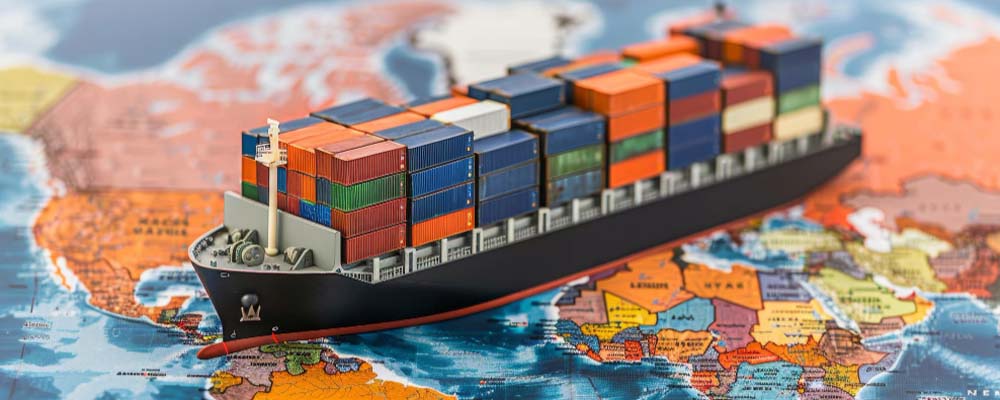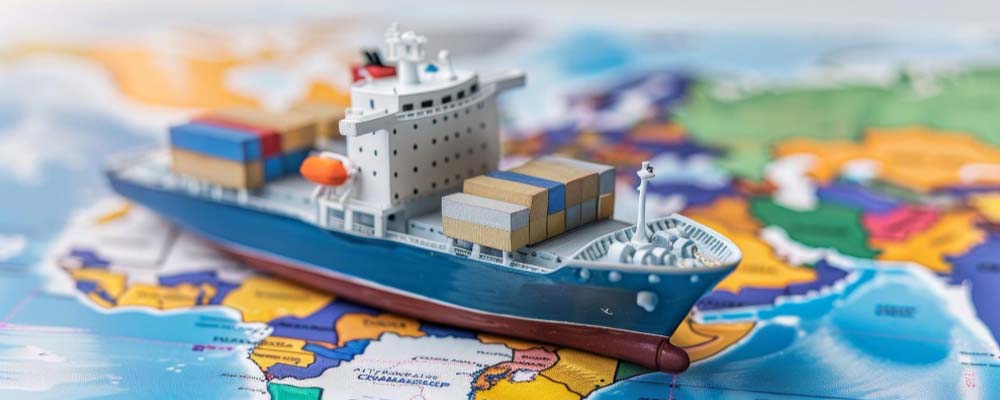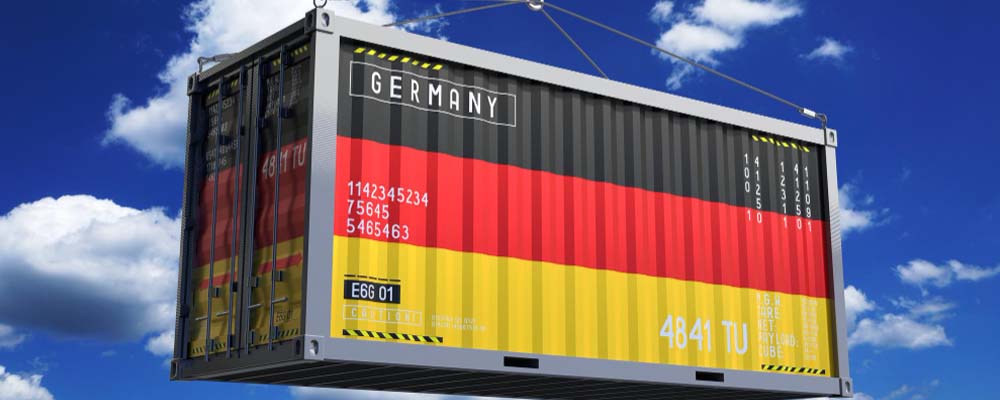
Shipping containers to Germany can seem like a daunting task, but with the right knowledge and resources, it can be a smooth and efficient process. In this ultimate guide, we’ll break down everything you need to know about shipping containers to Germany, from the various methods available to the costs involved, transit times, and much more. Whether you’re a freight forwarding company, a logistics provider, or an e-commerce business, this guide is tailored to help you understand and streamline your shipping operations to Germany.
What Are the Ways to Ship to Germany?
When it comes to shipping containers to Germany, several methods are available, each with its benefits and considerations.
Sea Freight
Sea freight is the most common method for shipping containers to Germany. It is a cost-effective option, particularly well-suited for transporting large volumes of goods. Shipping by sea involves container ships that transport cargo in standardized containers, making it easy to handle and transfer between different modes of transportation. Ports such as Hamburg and Bremen are key entry points for sea freight in Germany.
Air Freight
Air freight is a faster option compared to sea freight, making it ideal for time-sensitive shipments. However, it is more expensive and typically used for smaller, high-value goods. Airports like Frankfurt and Munich handle significant volumes of air cargo.
Rail Freight
Rail freight is an excellent alternative for shipping containers within Europe. It offers a balance between speed and cost, making it a practical choice for transporting goods to Germany from neighboring countries. The extensive rail network in Germany ensures efficient transportation to various regions.
Road Freight
Road freight is commonly used for short-distance shipments or as part of multimodal transport. It is flexible and can deliver goods directly to the final destination. Germany’s well-developed road infrastructure supports efficient road freight operations.
 What Are the Costs to Ship a Container to Germany?
What Are the Costs to Ship a Container to Germany?
Understanding the costs involved in shipping a container to Germany is crucial for budgeting and planning. Several factors influence shipping costs, including:
Container Size and Type
The size and type of container you choose will affect the cost. Standard 20-foot and 40-foot containers are the most common, but specialized containers for specific cargo require a higher investment.
Shipping Method
The method of shipping (sea, air, rail, or road) significantly impacts the cost. Sea freight is generally the most economical, while air freight tends to be the most expensive.
Distance and Route
The distance between the origin and destination ports, as well as the chosen route, will influence shipping costs. Greater distances and less frequently traveled routes may result in higher charges.
Customs and Duties
Import duties, taxes, and customs clearance fees are inevitable aspects of international shipping. Understanding and accounting for these costs will give you a clearer picture of the total expenses.
What is the Transit Time When Shipping to Germany?
Transit time is a crucial factor in shipping logistics. Knowing the estimated transit time helps in planning and ensuring timely deliveries.
Sea Freight Transit Time
Sea freight transit times vary depending on the origin and the specific route. On average, shipping from the United States to Germany takes about 2-4 weeks, while shipments from Asia may take 4-6 weeks.
Air Freight Transit Time
Air freight is significantly faster, with transit times ranging from 1-3 days for most international routes. This makes it an excellent choice for urgent or perishable goods.
Rail and Road Freight Transit Time
Rail freight within Europe typically takes 3-7 days, depending on the distance and specific routes. Road freight can vary widely based on the starting point and traffic conditions but usually ranges from 1-5 days for cross-border shipments.
Main Ports in Germany
Germany boasts several major ports that are pivotal to international trade. Understanding these ports helps in planning your shipping logistics effectively.
Port of Hamburg
The Port of Hamburg is Germany’s largest and busiest port, handling a significant portion of the country’s sea freight. It is well-equipped with modern facilities and offers excellent connectivity to other European destinations.
Port of Bremen
Bremen is another major port in Germany, known for its efficiency and extensive facilities. It is a crucial hub for containerized cargo and offers seamless connections to the hinterland.
Port of Duisburg
Although primarily an inland port, Duisburg is one of the world’s largest inland ports and a key logistics center. It provides excellent multimodal transport options, including rail and road connections.
 How Do I Find a Freight Forwarder in Germany?
How Do I Find a Freight Forwarder in Germany?
Choosing the right freight forwarder is essential for smooth shipping operations. Here are some steps to find a reliable freight forwarder in Germany:
Research and Recommendations
Start by conducting thorough research and seeking recommendations from industry peers. Look for freight forwarders with a strong reputation and experience in handling shipments to Germany.
Verify Credentials and Services
Ensure the freight forwarder is licensed and has the necessary certifications. Verify the range of services they offer, including customs clearance, warehousing, and multimodal transport options.
Evaluate Customer Support
Effective communication and customer support are crucial. Choose a freight forwarder that offers excellent customer service, timely updates, and a dedicated point of contact for your shipments.
FAQs about Shipping Your Container to Germany
How to Determine Shipping Costs to Germany?
Shipping costs depend on several factors, including the size and type of container, shipping method, distance, and additional fees such as customs duties. Requesting quotes from multiple shipping companies can help you compare costs and find the best deal.
What Type of Cargo Can Be Sent in a Container?
Containers can accommodate various types of cargo, including dry goods, refrigerated items, hazardous materials, and oversized equipment. Ensure your cargo complies with the shipping regulations and requirements of both the origin and destination countries.
What Paperwork is Needed for International Shipments to Germany?
International shipments to Germany require several documents, including a commercial invoice, packing list, bill of lading, and customs declaration. Accurate documentation is crucial for seamless customs clearance and preventing delays.
 Conclusion
Conclusion
Shipping containers to Germany can be a complex process, but with the right knowledge and resources, it becomes manageable and efficient. By understanding the different shipping methods, costs, transit times, and key ports, you can streamline your logistics and ensure successful deliveries.
For personalized assistance and expert guidance in shipping your containers to Germany, consider partnering with a reputable freight forwarder. They can provide valuable insights and handle all aspects of the shipping process, allowing you to focus on your core business operations.
Ready to simplify your shipping operations to Germany? Get in touch with our team today and start your hassle-free shipping journey.




 What Are the Costs to Ship a Container to Germany?
What Are the Costs to Ship a Container to Germany? How Do I Find a Freight Forwarder in Germany?
How Do I Find a Freight Forwarder in Germany? Conclusion
Conclusion



